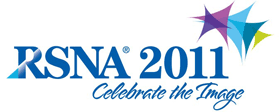
Abstract Archives of the RSNA, 2011
Koichiro Yamakado MD, PhD, Presenter: Nothing to Disclose
Shiro Miyayama, Abstract Co-Author: Nothing to Disclose
Shozo Hirota MD, Abstract Co-Author: Nothing to Disclose
Kimiyoshi I. Mizunuma MD, Abstract Co-Author: Nothing to Disclose
Kenji Nakamura MD, Abstract Co-Author: Nothing to Disclose
Yoshitaka Inaba MD, Abstract Co-Author: Nothing to Disclose
Takeshi Aramaki, Abstract Co-Author: Nothing to Disclose
Kunihiro Matsuo, Abstract Co-Author: Nothing to Disclose
Norifumi Nishida, Abstract Co-Author: Nothing to Disclose
Hiroshi Anai MD, PhD, Abstract Co-Author: Nothing to Disclose
Hideo Gobara MD, Abstract Co-Author: Nothing to Disclose
Shinichi Koura, Abstract Co-Author: Nothing to Disclose
Osamu Ikeda MD, Abstract Co-Author: Nothing to Disclose
Tetsuya Minami MD, Abstract Co-Author: Nothing to Disclose
Daisuke Abo MD, Abstract Co-Author: Nothing to Disclose
Keigo Osuga MD, Abstract Co-Author: Nothing to Disclose
Yoshito Takeuchi MD, Abstract Co-Author: Nothing to Disclose
Hiroshi Kotake, Abstract Co-Author: Nothing to Disclose
Hiroyuki Morishita MD, Abstract Co-Author: Nothing to Disclose
Yasuhiro Hata MD, Abstract Co-Author: Nothing to Disclose
Fumikiyo Ganaha MD, Abstract Co-Author: Nothing to Disclose
Shigeo Oikawa, Abstract Co-Author: Nothing to Disclose
Hitoshi Ito MD, Abstract Co-Author: Nothing to Disclose
Sachio Kuribayashi MD, Abstract Co-Author: Research grant, General Electric Company
Manabu Watanabe, Abstract Co-Author: Nothing to Disclose
Hiroki Okada MD, Abstract Co-Author: Nothing to Disclose
Kazuhiko Ueda MD, Abstract Co-Author: Nothing to Disclose
Hiroshi Nobata, Abstract Co-Author: Nothing to Disclose
Takeshi Kobayashi, Abstract Co-Author: Nothing to Disclose
Mika Kamiya MD, Abstract Co-Author: Nothing to Disclose
Taku Yasumot, Abstract Co-Author: Nothing to Disclose
Michio Yamasaki MD, Abstract Co-Author: Nothing to Disclose
Masato Yamaguchi MD, PhD, Abstract Co-Author: Nothing to Disclose
Hideaki Kakizawa, Abstract Co-Author: Nothing to Disclose
Akira Naito MD, Abstract Co-Author: Nothing to Disclose
Takeshi Hashimoto MD, Abstract Co-Author: Nothing to Disclose
Norihisa Nitta MD, Abstract Co-Author: Nothing to Disclose
Yoichiro Kuwata MD, Abstract Co-Author: Nothing to Disclose
Yasutaka Baba MD, Abstract Co-Author: Nothing to Disclose
Hiromu Mori MD, Abstract Co-Author: Nothing to Disclose
To retrospectively evaluate whether technical factors of hepatic arterial embolization affects prognosis in patients with hepatocellular carcinoma (HCC).
An IRB-approval for this study was obtained in each institution. Inclusion criteria of this study were as follows; a) patients who received embolization as the initial treatment in 2003-2004, b) Child A or B liver profile, c) 7 or less HCCs with a maximum diameter of 10cm or smaller, and d) no extrahepatic metastases. Patients’ data were gathered from 34 training centers accredited by Japanese Society of Interventional Radiology. Prognostic factors were evaluated using univariate and multivariate analyses.
Seven-hundred and thirty-one patients were enrolled; there were 476 men (65.1%) and 255 women (34.9%) with a mean age of 68.9+/-8.4 years (range, 40-91 years). The mean maximum tumor diameter was 3.5cm +/- 1.9 (range, 0.5-10.0 cm). The tumor number was single in 377 patients (51.6%) and portal venous invasion was found in 34 patients (4.7%). Embolization was done using gelatin sponge in all patients (100%), anticancer drug in 724 patients (99.0%), and iodized-oil in 720 patients (98.5%). Selective embolization was performed in 607 patients (83.0%). During the mean follow-up of 37.0 months, 1798 embolization sessions were performed with a mean of 3.2 per patient (range, 1-10). The 1-, 3-, 5-, and 7-year overall survival rates were 90.9% (95%CI, 88.8-93.1%), 59.6% (95%CI, 55.6-63.6%), 36.9% (95%CI, 32.7-41.1%), and 25.8% (95%CI, 21.5-30.0%) in all patients. The univariate analysis showed Child-Pugh class-A, alpha-fetoprotein level lower than 100 ng/ml, tumor size of 3 cm or smaller, single tumor, one-lobe tumor distribution, nodular tumor-type, stage-1 or -2, no portal venous invasion, and selective embolization are better prognostic factors. In the multivariate Cox model, the survival benefit of selective embolization remained significant (hazard ratio, 0.77; 95%CI, 0.34-0.91, p=0.0327).
Selective embolization contributes to survival in patients with unresectable HCCs.
This study have shown that technical factor (selective embolization) maters to improve survival of patients with unresectable HCCs.
Yamakado, K,
Miyayama, S,
Hirota, S,
Mizunuma, K,
Nakamura, K,
Inaba, Y,
Aramaki, T,
Matsuo, K,
Nishida, N,
Anai, H,
Gobara, H,
Koura, S,
Ikeda, O,
Minami, T,
Abo, D,
Osuga, K,
Takeuchi, Y,
Kotake, H,
Morishita, H,
Hata, Y,
Ganaha, F,
Oikawa, S,
Ito, H,
Kuribayashi, S,
Watanabe, M,
Okada, H,
Ueda, K,
Nobata, H,
Kobayashi, T,
Kamiya, M,
Yasumot, T,
Yamasaki, M,
Yamaguchi, M,
Kakizawa, H,
Naito, A,
Hashimoto, T,
Nitta, N,
Kuwata, Y,
Baba, Y,
Mori, H,
Hepatic Arterial Embolization for Unresectable Hepatocellular Carcinomas: Do Technical Factors Affect Patients' Survival?. Radiological Society of North America 2011 Scientific Assembly and Annual Meeting, November 26 - December 2, 2011 ,Chicago IL.
http://archive.rsna.org/2011/11020036.html

